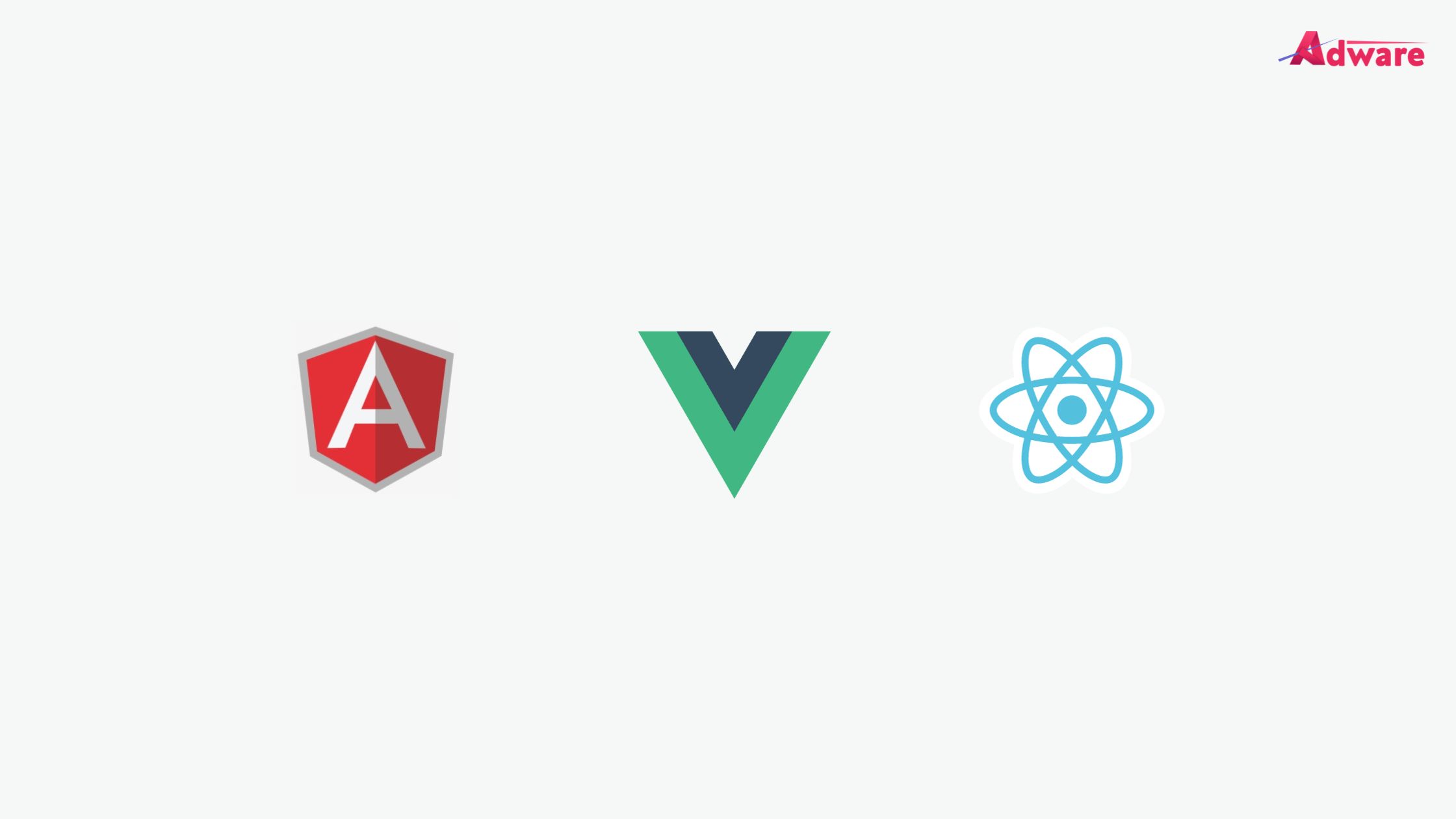A couple of years prior, designers were fundamentally discussing whether to utilize Precise or Respond for their applications. In any case, as of late, interest in a third player known as Vue.js has developed.
In this blog entry, we will dig further and clear up for you the fundamental distinctions between the three and which one you ought to decide for web advancement. Thus, hold on, this post will assist you with choosing which JavaScript framework to utilize in the event that you are a designer simply beginning on a venture or a startup hoping to re-appropriate your undertaking.
We should investigate every one of the three significant front-end development frameworks to comprehend what makes them special and where they succeed. We need to reveal some insight into the subject of picking the best framework and give an answer to the essential inquiry: " Which framework should I choose – Angular, React, or Vue.js, and why?"
A Brief Introduction of Angular Vs Vue Vs React
Certainly! Before delving into the technical details, let's take a moment to appreciate the philosophy and evolution of the three major front-end frameworks: Angular, React, and Vue.js.
AngularJS:
Key Features:
a) Developed and maintained by Google, Angular is a comprehensive and opinionated framework.
b) It follows the MVC (Model-View-Controller) architecture.
c) Uses TypeScript as its primary language, which offers strong typing and enhanced tooling.
d) Comes with an extensive set of built-in tools, such as a powerful CLI (Command Line Interface) for project management.
e) Has a steep learning curve, making it ideal for large and complex applications.
f) Offers a robust ecosystem and great support for dependency injection and testing.
Pros:
1. Strong structure and code organization.
2. Suitable for large-scale applications.
3. Well-suited for enterprise-level projects.
4. Consistent and standardized development approach.
React:
Key Features:
a) Developed and maintained by Facebook, React is a popular and flexible library for building user interfaces.
b) Follows a component-based architecture, where UI elements are organized into reusable components.
c) Uses JavaScript (or optionally TypeScript) and JSX (JavaScript XML) for defining component structure.
d) Offers a virtual DOM for efficient updates and rendering.
e) Has a large and active community with many third-party libraries and tools.
Pros:
1. Extremely flexible and component-oriented.
2. Lightweight, allowing developers to choose their preferred tools and libraries.
3. Excellent performance due to the virtual DOM.
4. A wide range of third-party libraries and a strong developer community.
Vue.js:
Key Features:
a) Vue.js is an open-source framework for building user interfaces, created by Evan You.
b) Follows a component-based architecture similar to React.
c) Offers a simple and approachable design that's easy to pick up for beginners.
d) Utilizes JavaScript and HTML templates (or optionally JSX).
e) Includes its own state management system called Vuex.
Pros:
1. Simple and gentle learning curve, making it ideal for beginners.
2. Excellent documentation and tooling.
3. Well-structured and organized code.
4. Vue CLI for project scaffolding and management.
5. Growing community and adoption.
Choosing the Right Framework
The choice between Angular, React, and Vue.js ultimately depends on your project's specific requirements:
Angular is best suited for large, enterprise-level applications where a structured, opinionated approach is beneficial, and TypeScript is preferred.
React is ideal if you want a flexible, component-driven architecture and prefer to cherry-pick additional libraries for routing and state management.
Vue.js is a great choice for small to medium-sized projects, startups, or when you want a gentle learning curve without compromising on functionality.
Why and when should you choose Angular.js?
- No one can deny the fact, Angularjs opinionated structure and built-in set of functions are perfect for large-scale, real-time, and dynamic application development like chat apps, and instant messaging.
- A well-formed structure along a broad set of enclosed features makes Angular highly appropriate for cross-platform mobile development and Enterprise applications
Why and when should you choose Vue.js?
- Developing a lightweight and single-page web application is now the best bet for Vue.
- If speed and performance are your priority, Vue would be your best choice.
Why and when should you choose React.js?
- You should choose React if you’re working on a front-end UI that requires a lot of user interaction.
- If your existing code base is getting out of hand, you should switch to React.
- When used effectively, React may save a lot of time, effort, and money in front-end development.
Learning Curve
As per their background, developers will have varied points of view on which framework of the three is the easiest to learn.
Easiest learning Curve: VueJS
According to our viewpoint, VueJS is the most direct system for most web designers to learn. As it is nearest to HTML and JavaScript nuts and bolts, it will feel natural. Beginning with VueJS is basically as simple as adding one import to an HTML archive. As you make more perplexing applications, VueJS gets more muddled. This requires working with .vue documents, which needs a more perplexing undertaking arrangement (albeit the Vue CLI can simplify this much) and you should submerge into additional mind-boggling designs.
Steepest learning curve: AngularJS
As Angular uses TypeScript, which is a subset of JavaScript, its expectation to learn and adapt is steep. The parts, grammar, and modules that you use can show up very not quite the same as the JavaScrip sentence structure that you are utilized to. However precise has a ton of vigorous, incorporated in highlights which lead designers into specific coding designs that can end up being very useful in making applications.
Medium learning curve: ReactJS
ReactJS has, what we say, a medium-to-soak expectation to learn and adapt. However, it utilizes an 'everything is JavaScript' approach, there are two circumstances to ReactJS. First is that it works best with ES6 linguistic structure, which can end up being trying for a novice engineer. The second is the utilization of JSX, which is a linguistic structure cross-breed of HTML and JavaScript and isn't utilized for commonplace JavaScript projects. Since JSX seems to be HTML, it very well may be troublesome from the get-go, yet is still JavaScript, prompting some disarray in figuring out the code.
Angular Vs Vue Vs React: Who Wins?
Let us review the characteristics of each framework at the end of this post to try to answer the question: Angular vs Vue vs React: which one should you choose?
Angular is the most mature framework, with a large community of contributors and a comprehensive set of features.
However, the learning curve is steep, and novice developers may be scared off by Angular notions.
Companies with large teams and developers that already use TypeScript should consider Angular.
React is just old enough to be mature, with a large number of community contributions. It has earned a lot of popularity. The job market for React is booming, and the framework’s future seems promising.
React appears to be a decent alternative for newcomers to front-end JavaScript frameworks, startups, and developers who value flexibility. Its ability to smoothly interact with different frameworks is a huge plus for individuals who want more freedom in their coding.
Vue is a newcomer to the market, with no substantial corporate support.
However, it has done exceptionally well in recent years to establish itself as a serious contender to Angular and React, particularly since the introduction of Vue 3.0. This could explain why Chinese behemoths like Alibaba and Baidu have chosen Vue as their preferred front-end JavaScript framework. If you want simplicity but yet want flexibility, Vue is the way to go.
Conclusion:
The end to the Angular vs. Vue vs. React discussion is that there is no very best decision, which you likely anticipated.
Every one of these libraries has its own arrangement of benefits and hindrances. One of them will be more reasonable than the others relying upon the undertaking you're chipping away at and your particular necessities. It's significant to lead your own examination prior to settling on a choice, particularly in the event that you're dealing with an organizational drive as opposed to an individual exertion.
Which framework, Hire Angularjs Developers, Hire Vuejs Developers, or Hire Reactjs Developers, do you believe is the winner here? Please let us know in the comments section below.




Comments (0)